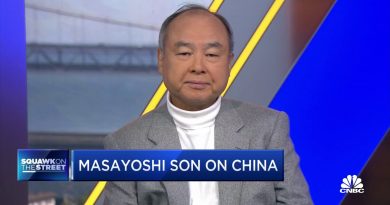Chinese foreign minister’s Brazil stop yields mutual visa deal

China and Brazil have agreed to streamline visa processes to revive exchanges between the two countries to pre-pandemic levels.
The agreement came as Chinese Foreign Minister Wang Yi stopped in Brasilia on his first international trip of the year, signalling Brazil’s growing importance to China.
Africa is traditionally the first port of call for China’s foreign minister in the new year and this year Brazil and Jamaica were added to Wang’s itinerary.
In talks on Friday, Wang and his Brazilian counterpart Mauro Vieira pledged to “restart coordination mechanisms in all areas” while strengthening high-level exchanges, according to a Chinese statement.
“China has always given priority to its relations with Brazil in its overall diplomacy and its diplomacy with Latin America … and hope to strengthen coordination of the developmental strategies and extend cooperation in new areas,” Wang said.
The talks were the first Foreign Ministerial-Level Comprehensive Strategic Dialogue since 2019.
Wang said after the meeting that visas would also be more “convenient”.
Brazil’s foreign ministry said the agreement would allow the consular authorities of both countries to grant visas valid for up to 10 years, doubling the current maximum grant period to encourage travel, business promotion and tourism.
They also agreed to speed up the establishment of the Brazilian consulate in Chengdu.
China is Brazil’s largest trading partner, importing iron ore, soybeans, and oil from the South American country.
The two nations have been expanding cooperation into areas such as renewable energy, 5G, and cars.
Beijing and Brasilia are also part of Brics, a grouping of major emerging economies, which is expected to grow its membership from five – Brazil, Russia, India, China and South Africa – to nine this year.
“As the world has entered a new period of turbulence and transformation, China and Brazil, the two biggest developing countries and representatives of emerging market economies in the Eastern and Western hemispheres, should strengthen unity and cooperation to jointly respond to global challenges,” Wang said.
Wang also met President Luiz Inacio Lula da Silva and his adviser Celso Amorim on Friday, with collaboration on international governance on the agenda.
“Brazil and China have a high level of consensus on many important topics,” Lula was quoted as saying.
“We look forward to seeing China supporting Brazil in hosting multilateral conferences … and joining hands [with China] to improve global governance and raise the collective strength and international discourse power of developing countries.”
Chinese President Xi Jinping met Lula in Beijing in April, signing various trade deals.
The two countries have stepped up coordination since the war broke out in Ukraine about two years ago, and as the humanitarian crisis worsened in the Israel-Gaza war.
Wang and Vieira met late last year on the sidelines of a United Nations Security Council meeting on the Gaza conflict.
Niu Haibin, the director of the Institute for Foreign Policy Studies at the Shanghai Institutes for International Studies, said the growing collaboration between the two countries would likely centre on multilateral mechanisms like Brics and the UN as “almost all aspects in the economy and trade have been covered”.
Niu said there was still room for improvement on issues such as Brazilian protectionism and tariffs but they had not been a major hurdle.
“As the Brics countries are playing an increasingly important role on issues of globalisation, security, economic governance, and climate change, coordination between China and Brazil is very important,” he said.
The Wang-Vieira meeting “revived” a high-level coordination mechanism between the two countries, and showed the higher importance China placed on South America, he added.
Source – Bangkok News




